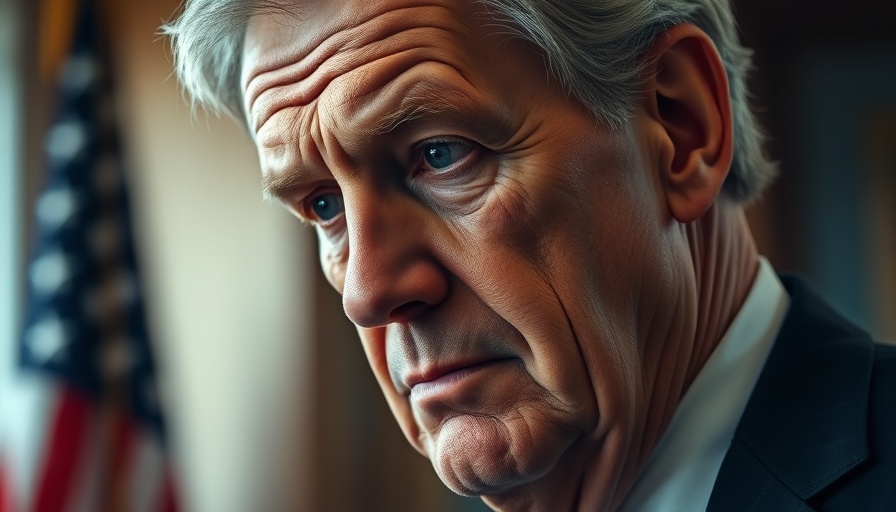
Trump's Bold Move on Drug Pricing: What It Means for Americans
In a significant announcement from Washington, President Donald Trump revealed plans to sign an executive order aimed at reducing the cost of certain medications for millions of Americans. This proposal, reminiscent of his earlier attempts in office, endeavors to align Medicare drug prices with those paid by other nations, which could mark a pivotal moment in U.S. healthcare policy.
Understanding the Most Favored Nation Policy
Through what he labels a "Most Favored Nation's Policy," Trump intends to ensure that the U.S. pays the same price for medications as the country with the lowest cost globally. This policy is expected to primarily affect medications administered in a doctor’s office, particularly infusions and injectables—medications pivotal in treating serious conditions like cancer.
Currently, many medications in the U.S. are priced significantly higher than in other industrialized nations. The Medicare Part B drug spending alone exceeded $33 billion in 2021, reflecting a broader narrative of escalating healthcare costs that have long unsettled policymakers and citizens alike.
Potential Benefits and Challenges Ahead
The proposed order stands to potentially deliver significant savings for the U.S. government and its citizens, directly impacting approximately 70 million Americans enrolled in Medicare. However, the promise of “TRILLIONS OF DOLLARS” in savings, as trumpeted by Trump, has been met with skepticism regarding its accuracy and feasibility.
The pharmaceutical industry is gearing up for a fierce response, citing concerns that such price controls would stifle innovation. This sector has traditionally argued that lower profits could hinder the development of new drugs essential for treating various diseases.
Historical Context: Revisiting Drug Pricing Initiatives
Trump's latest endeavor hearkens back to similar initiatives from the earlier stages of his presidency, where he sought to implement price control measures that faced logistical and legal obstacles. In his final days as president, he signed a related executive order, but it was stymied by legal challenges following the shift to the Biden administration. The persistent issue of high drug prices has become a bipartisan concern, usually ending without satisfactory resolutions in Congress.
The Ongoing Debate: Diverse Opinions on Drug Pricing
This latest announcement has reignited a spirited debate on the ethics and economics of drug pricing in America. Proponents argue that adopting standardized prices based on what others pay could democratize healthcare access, while opponents underscore the importance of market forces driving pharmaceutical innovation.
The contrasting perspectives highlight a national conversation that transcends party lines, challenging both Democrats and Republicans to find sustainable solutions to an issue plaguing American healthcare for decades.
Future Implications: A Catalyst for Change?
As Trump prepares for this executive order, the implications for the future of U.S. healthcare policy are profound. If successfully implemented, it could reshape purchasing strategies and provoke a reexamination of hospital and insurance pricing frameworks. This decisive move could also serve as a bellwether for how future administrations might approach the complex intersection of healthcare service costs versus pharmaceutical investment returns.
Therefore, the anticipation surrounding Trump's announcement is not just about immediate savings—it is also about the values such policies reflect in the American healthcare system moving forward.
Act Now: Stay Informed on Healthcare Changes
As the situation unfolds, it's crucial for citizens, particularly in Marin County, to stay apprised of changes in drug pricing policies and their potential impact on healthcare access. Understanding these developments could help you navigate your healthcare decisions effectively. Follow local news updates to stay informed!
 Add Row
Add Row  Add
Add 




 Add Row
Add Row  Add
Add 

Write A Comment